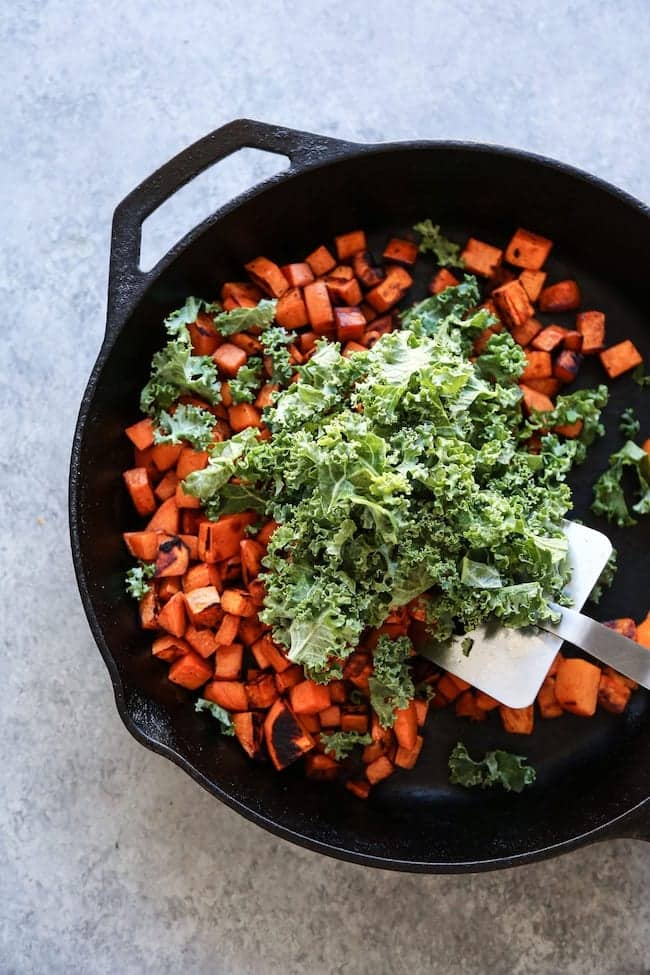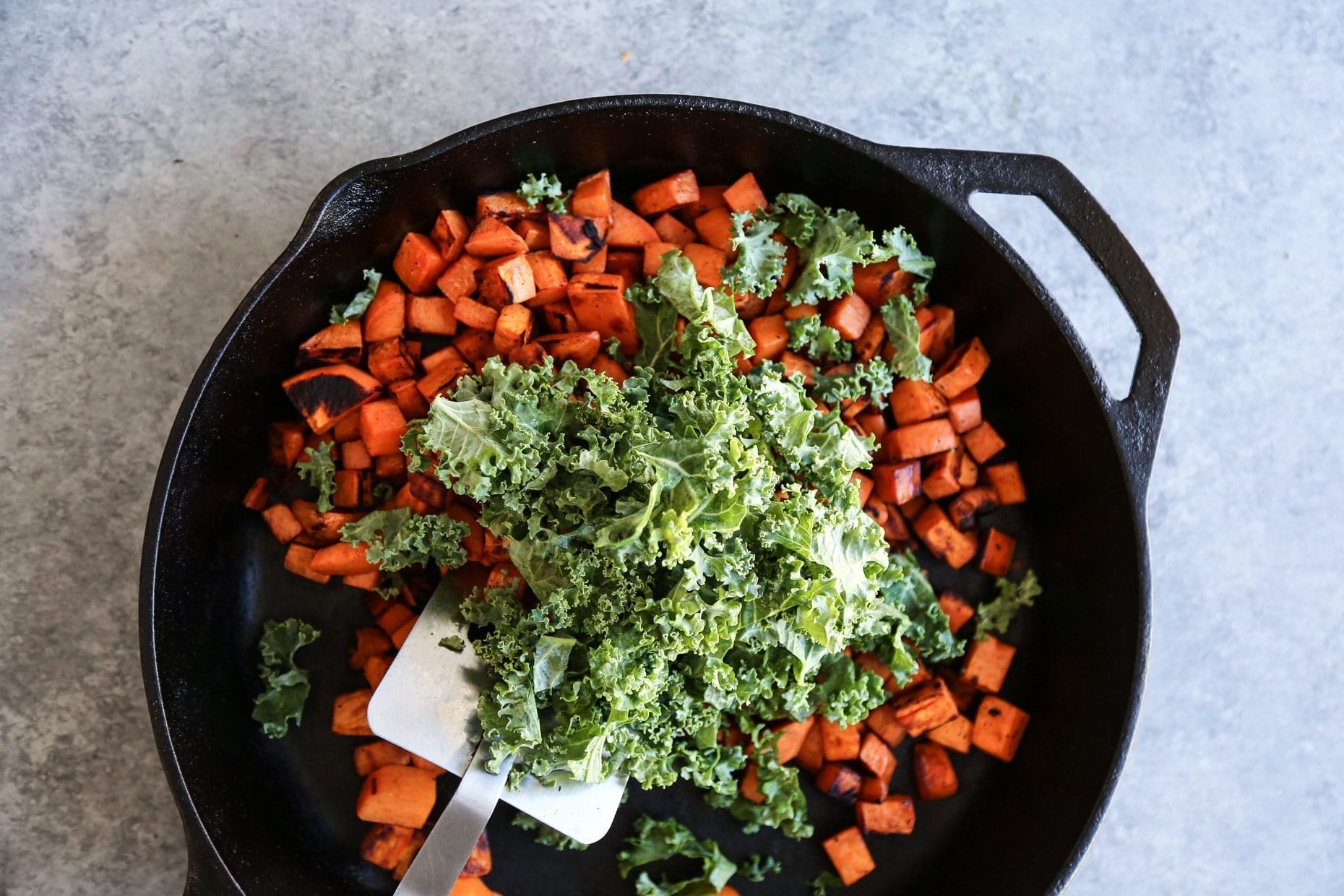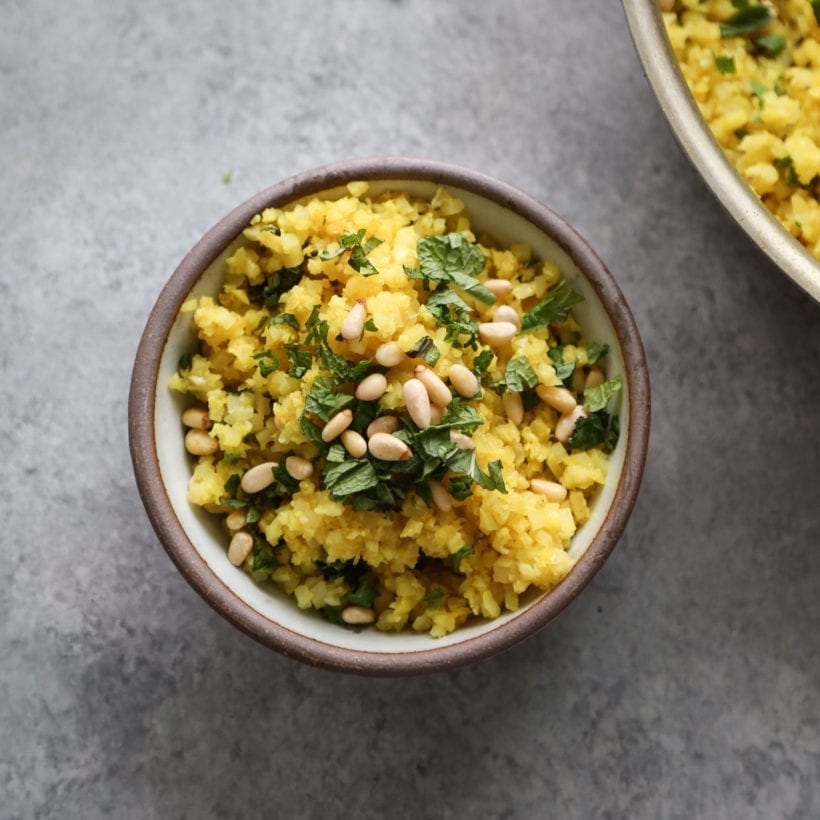My diet could perhaps best be described as “veggie curious.” I want the benefits of a plant-based diet but I’m not ready to commit to completely giving up a perfectly roasted fillet of salmon. Or Sunday huevos rancheros. Or cheese. The good news is, you don’t have to go full-on vegan or vegetarian to adopt a more plant-based diet.
Countless studies show that eating plant-based is linked to better physical health. A review of research published in 2019 concluded that there was “robust evidence” that eating more plants is beneficial for weight, energy and inflammation. “There is absolutely no doubt of the health benefits and disease-preventing effects of plant-based meals,” says Valerie Agyeman, women’s health dietitian and founder of Flourish Heights. “Not only are they delicious and versatile, but they are also packed with nutrients that help your body to thrive.” (Several studies have also linked plant-based diets to better brain health, though more research is still needed here.)

“A lot of people I work with make this shift because they are looking to have a positive impact on their health,” says celebrity nutritionist Haylie Pomroy. “Typically, when people approach the subject of plant-based in my practice we are looking at things like inflammation or autoimmune disorders or maybe they have read something about a plant-based diet helping them to balance their pH, acid, or alkalinity in their body.”
Then there’s the sustainability argument for veggie life: “Specifically, the discussion of the production of excess methane gas and pollution associated with heavily animal-based eating,” Pomroy explains. “The closer you can get to the farmer the better.”
Basically, there’s really no reason not to add more plants to your diet (even if you still opt to eat animal products like meat and dairy). “In every single one of my programs vegetables are unlimited — all of us need to add more veggies into our meals and snacks. So, I will always have my clients double down and add more portions to their vegetable count.”
Going plant-based
Think of a plant-based diet as the most flexible, inclusive way to eat healthier. Unlike going vegetarian (no meat or fish) or vegan (no animal products at all), adopting a plant-based diet doesn’t exclude any food groups, it simply welcomes more plants onto your plate. “To achieve balance and quality of life, complete restriction of all meat and meat products might not be the answer for everyone, their health status, or their lifestyle,” says Agyeman. “Regardless, everyone should adopt more fruits, vegetables, whole grains, nuts, seeds and legumes into their eating routine — every little bit counts.”

You still have to be mindful of course: “Many plant-based diets incorporate a lot of processed food which has a negative impact on the digestive system and can give a pro-inflammatory response,” says Pomroy. “This is epically true when people use a lot of soy products or vegan products with many hidden additives and chemicals inside. Be aware that if you choose to go vegan or plant-based that you are not substituting any whole foods with processed foods.”
Before you make any major dietary shifts, keep in mind: “With a fully plant-based lifestyle, you may be missing some nutrients that only come from meat and meat products,” says Agyeman. If you’re cutting out a food group entirely, check in with your doctor or a nutritionist. “Supplements may be needed to decrease the risk for deficiencies in nutrients such as vitamin B12, vitamin D, iron, zinc, calcium, and omega 3s,” Agyeman says. “But with good planning, a variety of plant-based foods, and support from a dietitian, balance can definitely be achieved.”
Here, find six plant-based, nutritionist-recommended foods you can easily swap into your diet:
-
Cauliflower

Cauliflower is a hearty enough meat substitute that many restaurants serve it as “steak.” It’s incredibly versatile: roast it and throw it into tacos as a substitute for chicken, add it to your salad as a sub for shrimp, or puree it and add it to a soup as a substitute for cream.
-
Sweet potatoes
Sweet potatoes are a surprisingly delicious meat substitute in your favorite Mexican recipe. Sweet potato tacos? Quesadillas? Enchiladas? Trust us, with the sweetness of the potato and the kick of the spices, you won’t even realize the meat is missing.
-
Chickpeas
Chickpeas (aka garbanzo beans) might be the easiest way to add more plant-based foods into your diet. Seriously, these legumes are meal chameleons. Toss a batch with olive oil, add any spice you desire (you can’t lose with salt, pepper and paprika or cinnamon and cumin), and roast them in the oven. Softer chickpeas (less roasting time) work well in wraps or salads and crispier chickpeas (more roasting time) make a perfect crunchy snack.
-
Mushrooms

Agyeman loves mushrooms for their meaty texture, which makes them the perfect ingredient for a meatless meal. Packed with amino acids, you can sear them on the grill as a burger patty replacement, finely chop them as a sub for ground meat, or even roast them in the oven with the slightest hint of maple syrup as a bacon replacement.
-
Nuts
Nuts may be one of the most prolific plant-based swaps out there because there’s so much you can do with them. Use them anywhere you would normally use dairy. Try almond milk instead of creamer in your morning coffee, coconut-based ice cream instead of your usual dairy treat, or whip up a cashew crema to replace cheese, sour cream, or heavy cream.
-
Jackfruit
Jackfruit bears an uncanny resemblance to pulled pork both in texture and flavor. But it’s a fruit, which means it’s packed with vitamins and antioxidants. Slow roast it with barbeque sauce and toss it in a sandwich, quesadilla or chili.
We only recommend products we have independently researched, tested, and loved. If you purchase a product found through our links, Sunday Edit may earn an affiliate commission.









